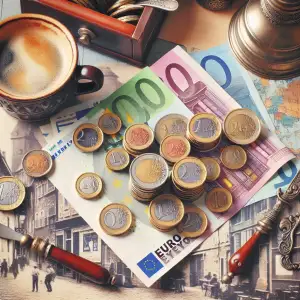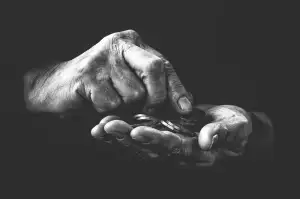Is It Really Money's Worth? Find Out Now!
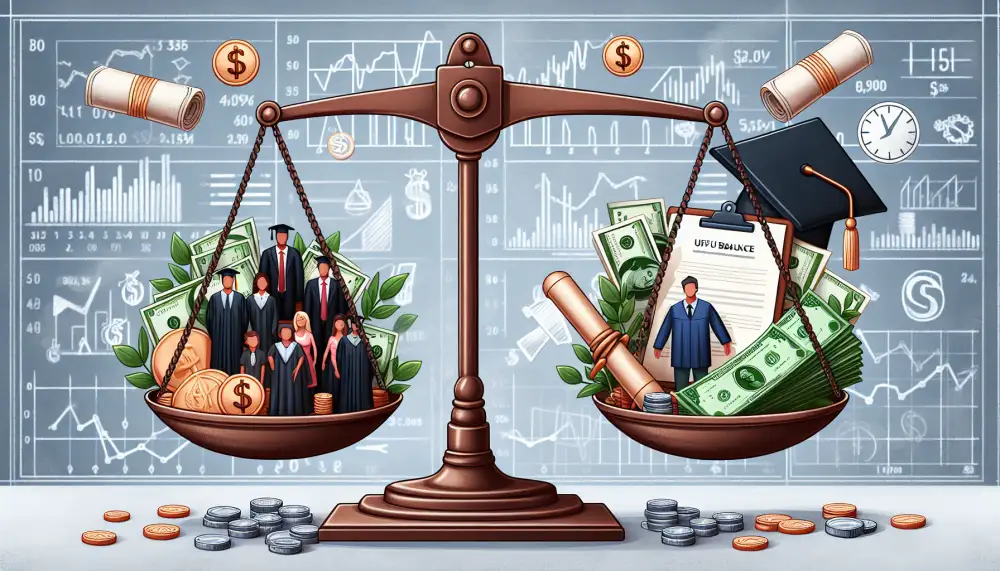
Understanding Money's Worth
In a world saturated with choices, understanding "money's worth" is crucial. It's about maximizing the value you extract from every dollar spent. This doesn't always mean buying the cheapest option. It's about aligning your spending with your values and needs, ensuring you receive a worthwhile return on your investment, whether that's a tangible product, a service, or an experience.
Think about it. A $5 coffee might seem extravagant to some, but for someone who values the ritual, the quality, and the ambiance of a particular coffee shop, it's money well spent. Conversely, a cheap appliance that breaks down quickly might appear initially appealing but ultimately costs more in repairs and replacements.
Evaluating money's worth requires careful consideration of several factors: quality, durability, functionality, and your personal satisfaction. It's about asking yourself: "Does this purchase truly add value to my life?" or "Are there better ways to allocate these funds?". This conscious approach to spending fosters financial awareness and empowers you to make informed decisions that align with your priorities, leading to greater satisfaction and financial well-being in the long run.
Assessing Product Value
Assessing a product's value goes beyond the price tag. It's about understanding the worth you receive in exchange for your hard-earned money. This means considering various factors, not just the most obvious ones.
Start with your needs and priorities. A high-end coffee machine might be tempting, but is it truly valuable if you're a casual coffee drinker? Consider the product's quality, durability, and features. A well-made item that lasts longer and offers more functionality often justifies a higher price.
Think about the long-term cost. Sometimes, spending a bit more upfront on a durable product saves you money in the long run, as you won't need to replace it as frequently. Factor in intangible benefits like convenience, enjoyment, or peace of mind. A product that simplifies your life or brings you joy can hold significant value, even if it's not a necessity.
Research and compare. Read reviews, compare prices from different sellers, and explore alternative options. This helps you determine if you're getting a fair deal and if a similar product might offer better value for your specific needs. Ultimately, assessing product value is a personal endeavor. What's valuable to one person might not be to another. By carefully considering your needs, priorities, and the product's overall worth, you can make informed purchasing decisions that provide lasting satisfaction.
Cost vs. Quality Equation
The age-old struggle of "you get what you pay for" is at the heart of the cost vs. quality equation. We want the best, but we also don't want to empty our wallets. Sometimes, a higher price tag does reflect better materials, craftsmanship, and longevity. Think of a well-made pair of shoes that lasts for years versus a cheaper alternative that falls apart after a few months. The initial investment might be higher, but the cost per wear tells a different story.

However, a hefty price doesn't always guarantee superior quality. Brand names, marketing hype, and perceived exclusivity can inflate prices without a corresponding increase in value. A $500 designer t-shirt might not be inherently "better" than a $20 one made from similar fabric. This is where research, reviews, and understanding your own needs come in. Are you paying for the brand name or the actual product?
Ultimately, the cost vs. quality equation is about finding the sweet spot – that point where you're getting the best possible value for your money. It's about recognizing that sometimes, a higher price is justified, while other times, it's about being a savvy consumer and not falling prey to clever marketing.
Durability and Longevity
When we talk about getting our money's worth, durability and longevity are key players. It's about investing in items that stand the test of time, proving their value long after the price tag is forgotten. Think about a sturdy, well-crafted table that becomes a cherished heirloom, passed down through generations. Or a winter coat, built to withstand years of icy winds and snowy days, keeping you warm and stylish every step of the way. These are not just purchases; they are investments in quality and longevity, ultimately saving you money in the long run.
Choosing durable products means fewer replacements, less waste, and more value for your hard-earned cash. It's about looking beyond the initial cost and considering the bigger picture: the cost per use, the environmental impact, and the satisfaction of owning something built to last. So, the next time you're weighing your options, remember that durability and longevity are powerful allies in your quest for true value.
Emotional Value Factor
Sometimes, the worth of something goes beyond the cold, hard numbers on a price tag. It digs deep into the sentimental value, the emotional weight it carries. Think about your grandmother's vintage record player, a little worse for wear but brimming with memories of family singalongs. Its monetary value might be negligible, but the joy it brings, the connection to the past, makes it priceless.
This emotional value factor plays a huge role in how we perceive value for money. We might splurge on a concert ticket for a band we adore, knowing the experience, the shared passion with fellow fans, will far outweigh the cost. Conversely, we might haggle over the price of a second-hand appliance, even if it's a good deal, simply because it lacks that emotional resonance.
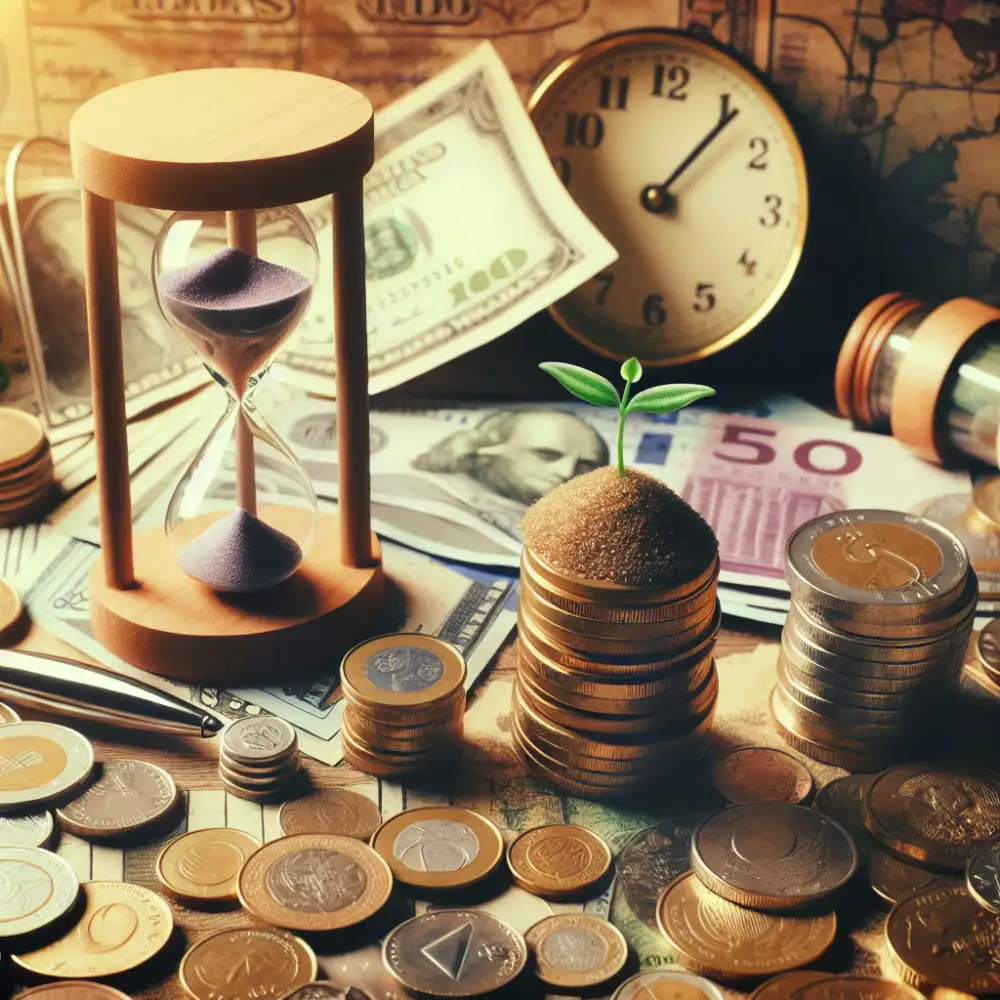
Businesses understand this. They leverage nostalgia in advertising, create experiences that foster brand loyalty, and build communities around their products. They know that tapping into our emotions can make us willing to spend a little extra, or choose their product over a cheaper alternative. Ultimately, understanding the emotional value factor, both as consumers and businesses, allows for a more nuanced understanding of worth, one that goes beyond the purely transactional and acknowledges the powerful role sentimentality plays in our relationship with money and the things we buy.
Opportunity Costs
Opportunity cost is a fundamental concept in economics that extends far beyond just dollars and cents. It speaks to the very heart of decision-making and understanding the true value of our choices. In essence, opportunity cost represents the value of the next best alternative that we forgo when we make a decision. It's about recognizing that choosing one thing often means giving up something else.
Think about buying a new car. The sticker price tells you how much money you'll part with, but it doesn't reveal the full story of your sacrifice. The opportunity cost includes things like the vacation you could have taken with that money, the down payment on a house, or even the simple pleasure of having extra savings.
The same principle applies to how we spend our time. If you spend your Saturday afternoon watching a movie, the opportunity cost is the time you could have spent going for a hike, reading a book, or catching up with friends. It's not about assigning a monetary value to these activities but rather recognizing that our time and resources are limited, and every choice comes with trade-offs.
Understanding opportunity costs can lead to more informed and fulfilling decisions. By consciously considering the value of our alternatives, we can ensure that our choices align with our priorities and goals. It encourages us to think beyond the immediate price tag and consider the broader implications of our actions, ultimately helping us make the most of our limited resources, both financial and otherwise.
Subjective Value
Avoiding Impulse PurchasesOne of the biggest enemies of smart spending is impulse buying. That's the "I-need-it-now" feeling that often leads to regret later. You've been there – a tempting display, a flash sale, or that "add to cart" button that seems impossible to resist. But before you whip out your credit card, take a breath and ask yourself a few questions:
Do I really need this, or do I just want it? There's a big difference. Needs are essential, while wants are often fleeting desires.
What value will this add to my life? Will it make my life easier, more enjoyable, or help me achieve a goal? Or is it just clutter waiting to happen?
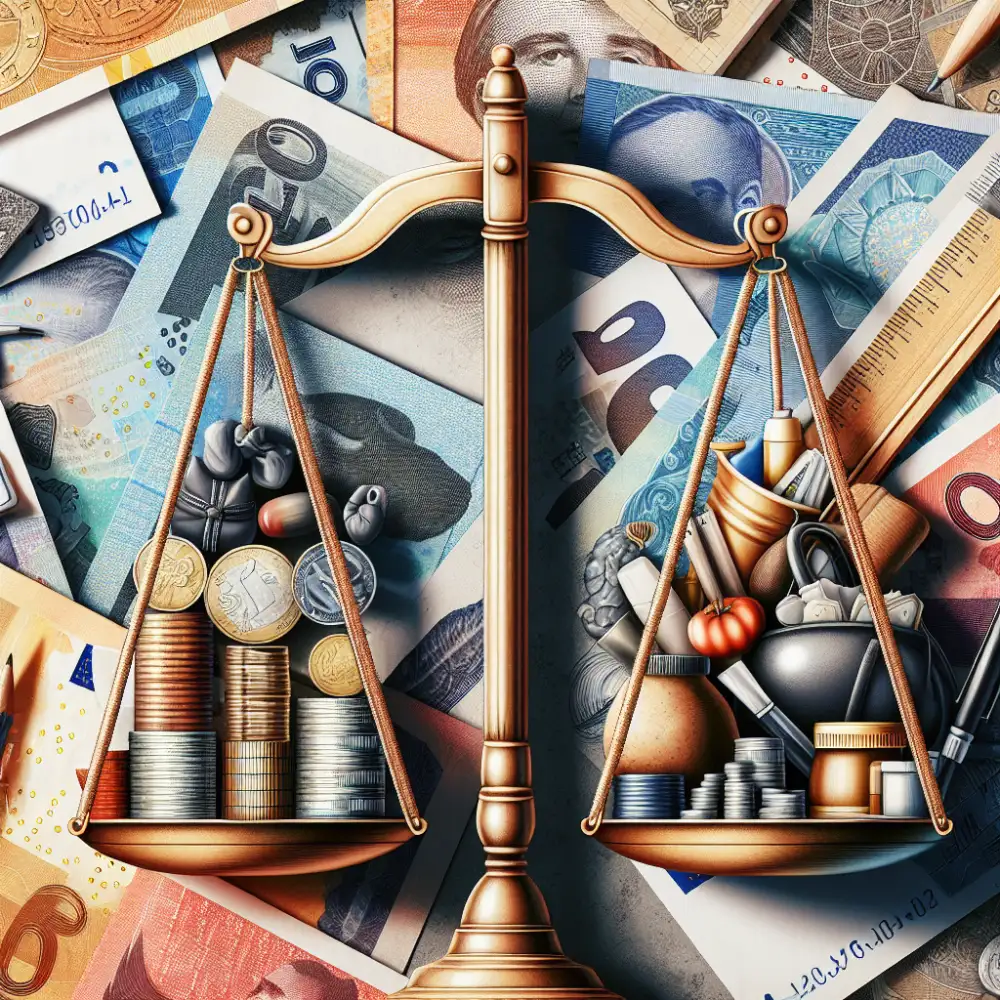

Can I afford this without sacrificing my financial goals? That new pair of shoes might be calling your name, but not if it means dipping into the money you're saving for a down payment on a house.
How long have I actually wanted this? Was it love at first sight, or did the urge to buy just hit you in the last five minutes? If it's the latter, it's probably an impulse you can ignore.
By taking a moment to pause and consider these questions, you can make more mindful spending decisions. Remember, every dollar you spend is a vote for the life you want to create. Make sure your spending aligns with your values and goals, not just your fleeting desires.
Research and Comparison
When we talk about something being "worth the money," we're essentially talking about value. But value is subjective and influenced by individual needs, preferences, and circumstances. A high price tag doesn't automatically equal good value, and conversely, a bargain-basement price doesn't always mean you're sacrificing quality.
Research plays a crucial role in determining whether something is truly worth your hard-earned cash. Before making a purchase, especially a significant one, it's essential to gather information from various sources. Online reviews from other consumers can offer valuable insights into the product or service's performance, durability, and overall satisfaction. Independent review sites and consumer organizations often provide unbiased assessments and comparisons, helping you cut through marketing hype.
Don't stop at just reading reviews, though. Compare prices from different retailers or service providers. Factor in additional costs like shipping, installation, or ongoing maintenance. Consider the product's lifespan and potential resale value. Sometimes, spending a bit more upfront on a durable, high-quality item can save you money in the long run.
Ultimately, the decision of whether something is "worth it" is deeply personal. By conducting thorough research and comparing your options, you empower yourself to make informed decisions that align with your budget and values. Remember, the cheapest option isn't always the best value, and the most expensive isn't necessarily the highest quality.
Negotiating for Value
Start by defining what's truly important to you. Are you flexible on price if certain features or services are included? Would you consider a longer contract for a lower monthly rate? Once you know your priorities, research comparable products or services. This provides leverage during negotiations, demonstrating your knowledge and setting realistic expectations.
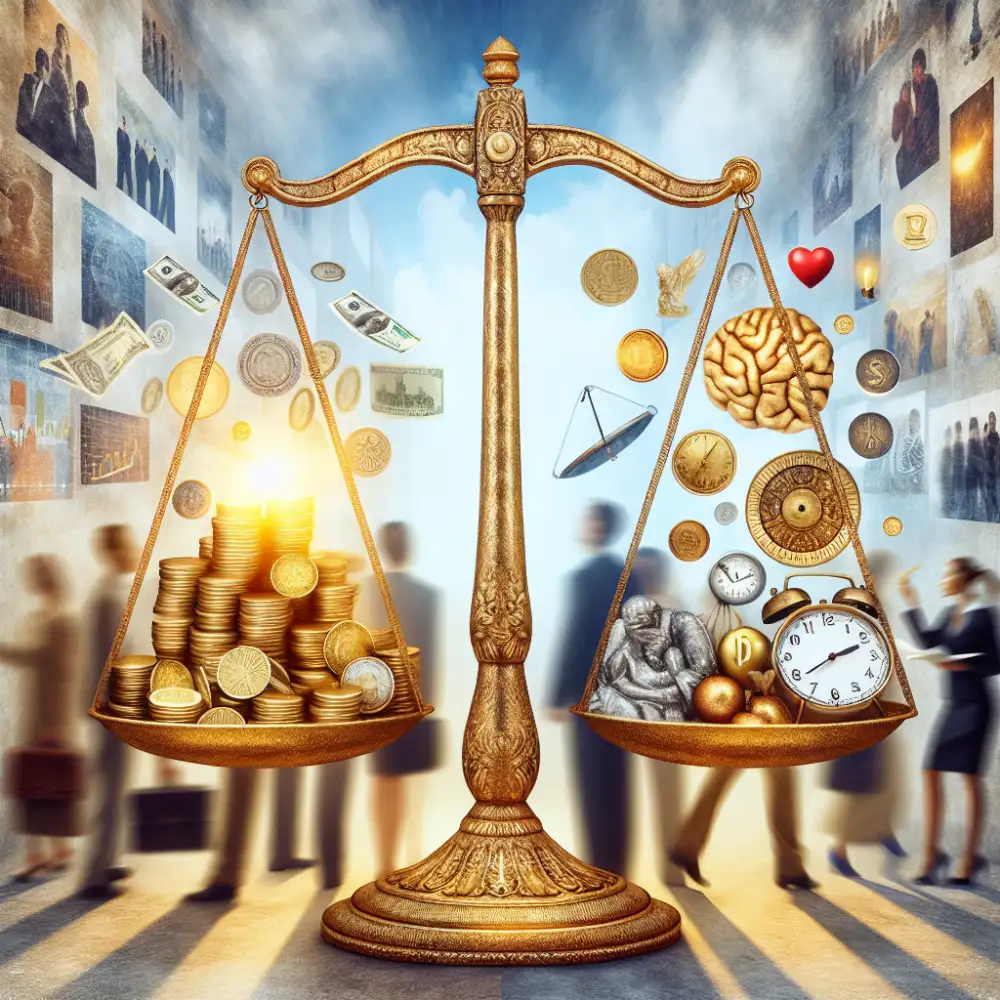
Don't be afraid to walk away if the value isn't there. This shows you're serious and willing to explore other options. Often, a firm stance can lead to concessions from the other party. Remember, a good deal benefits both sides. You want to feel satisfied with the outcome, knowing you received fair value for your money.
A penny saved is a penny earned, but a penny invested wisely can be a fortune built.
Eleanor Roosevelt
Long-Term Investments
Long-term investments are all about patience and discipline. Unlike trading or short-term speculation, where the goal is to time the market perfectly and make quick profits, long-term investing focuses on the intrinsic value of an asset. Think of it like planting a tree. You carefully choose a sapling with strong roots, nurture it, and patiently wait for it to grow into a mighty oak. You don't panic and uproot it every time the wind blows or the seasons change.
The same principle applies to investments. You identify assets with solid fundamentals, like well-established companies with a history of growth or real estate in desirable locations. You hold onto these investments for years, even decades, weathering market fluctuations and economic downturns. This strategy allows you to benefit from the power of compounding, where your returns generate even more returns over time.
Remember, the true value of an investment is not just the price tag but the potential it holds for future growth and income. By adopting a long-term perspective, you focus on the bigger picture, making informed decisions that align with your financial goals and risk tolerance.
Experiences over Possessions
For years, we've been conditioned to seek happiness in material possessions. We work tirelessly to afford the latest gadgets, designer clothes, and luxurious cars, believing they hold the key to fulfillment. But as we accumulate more things, we often find ourselves on a hedonic treadmill, constantly chasing the next purchase, the next dopamine hit. The truth is, true and lasting happiness is more likely found in experiences than in possessions.
Think about it: a delicious meal with friends, a breathtaking hike in nature, a concert that moves you to your core – these are the moments that stay with us, shaping our memories and becoming part of our personal narratives. Experiences offer something that material goods simply can't replicate: connection, growth, and a sense of being truly alive. When we invest in experiences, we invest in ourselves, in our relationships, and in creating a life rich in stories and meaning.
Moreover, experiences tend to appreciate in value over time. The thrill of a new car fades, but the memory of a backpacking trip through Southeast Asia becomes a cherished tale, growing richer with each retelling. Experiences become woven into the fabric of who we are, shaping our perspectives and influencing our future choices. So, the next time you're contemplating a significant purchase, ask yourself: will this bring me lasting joy and fulfillment, or am I simply chasing a fleeting feeling? Choose experiences, invest in yourself, and discover the true value of a life well-lived.
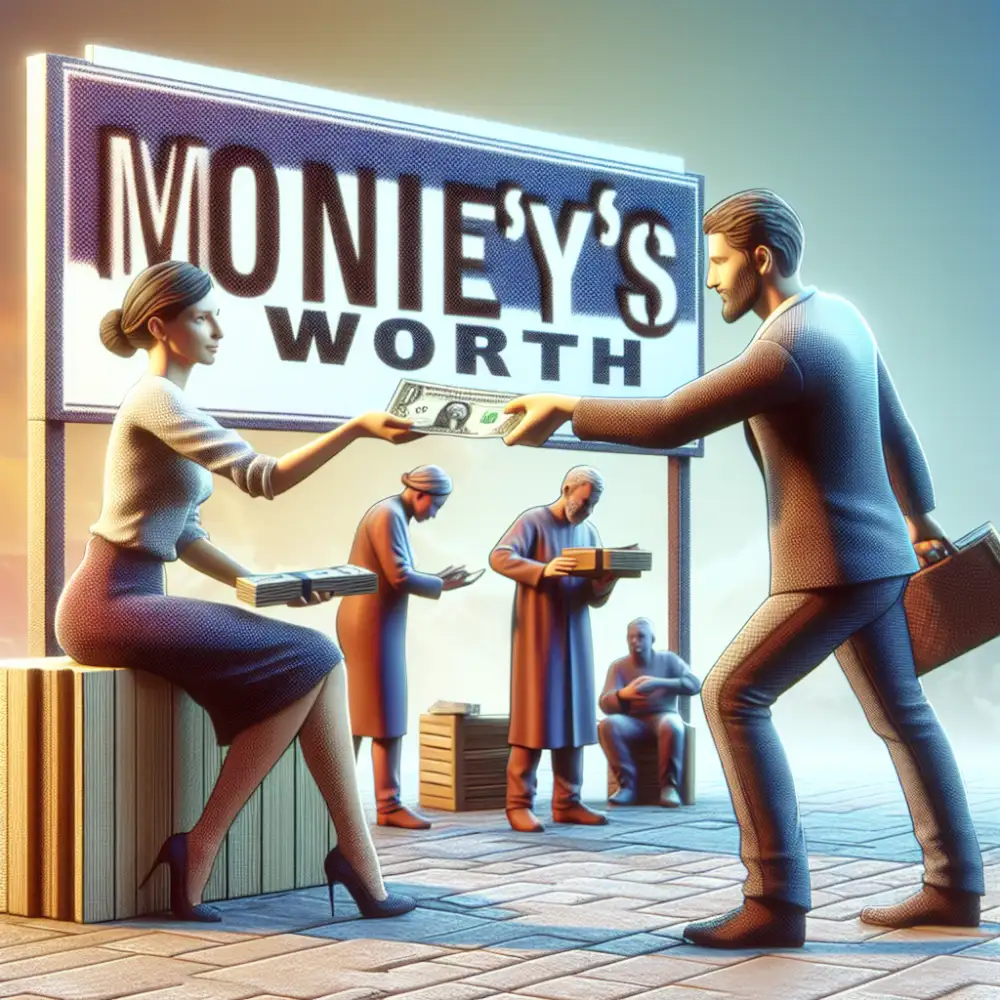
Published: 27. 06. 2024
Category: Finance


